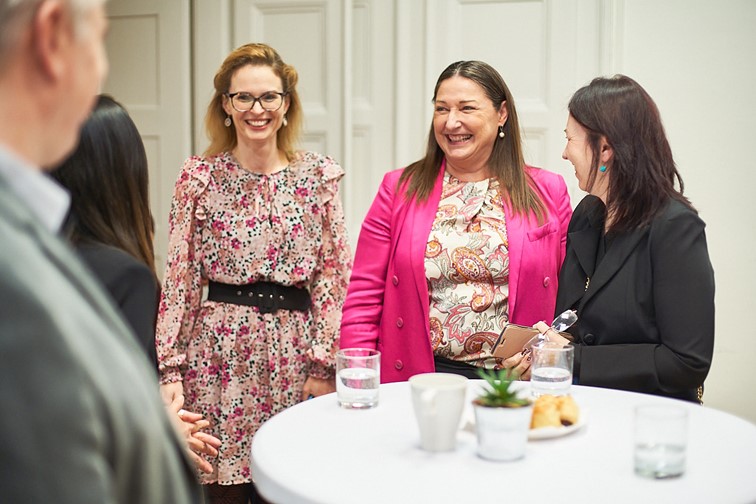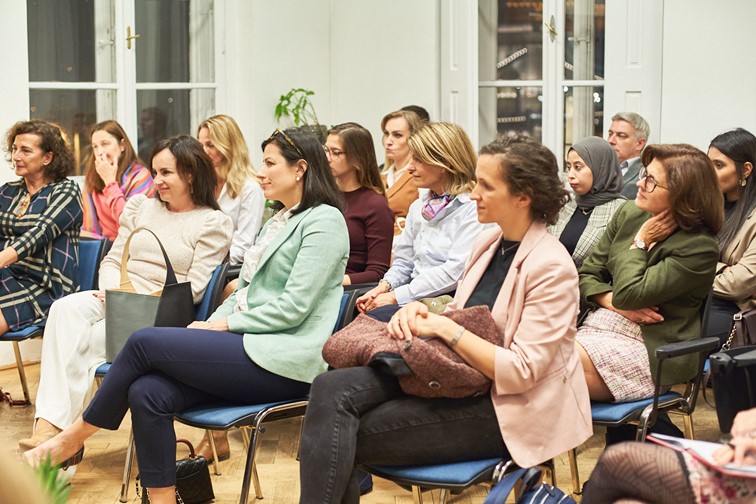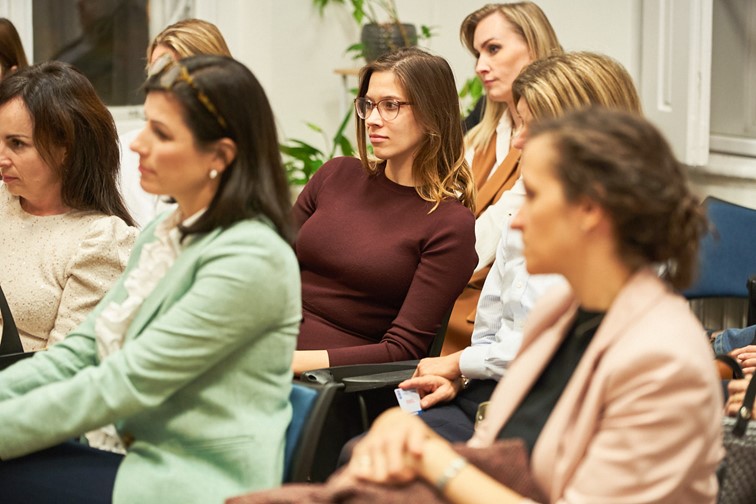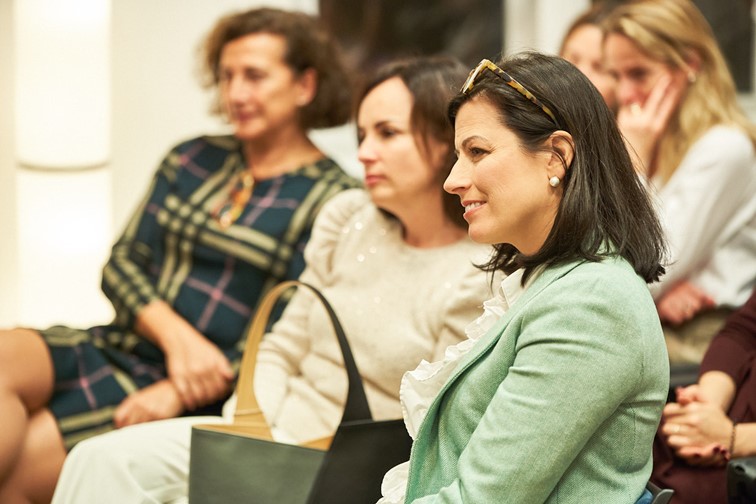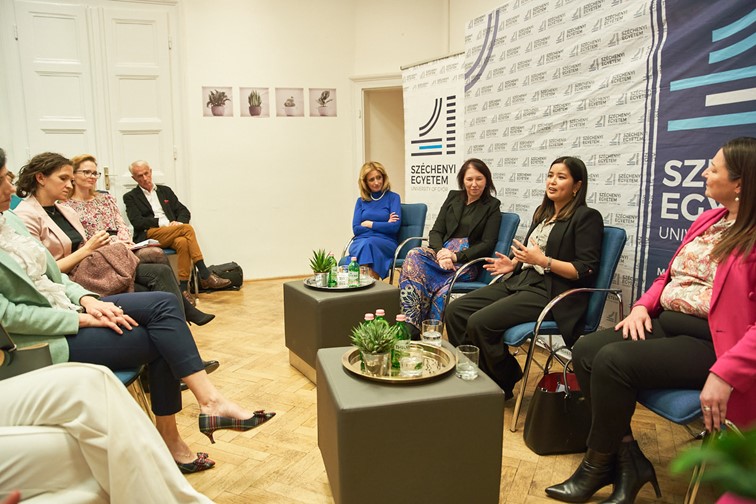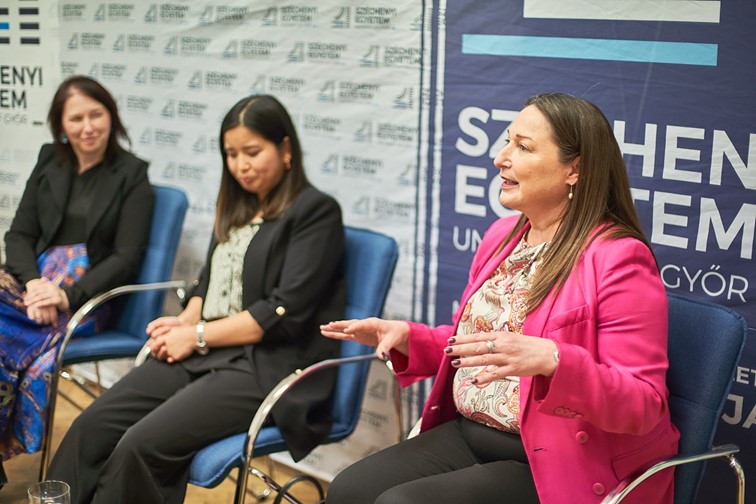Women in Scientific Careers – a Mini-Conference Organized by Széchenyi István University
Széchenyi István University's mini-conference series aligns with the United Nations' sustainable development goals, exploring the theme of gender equality via invited external speakers. The latest event focused on how to promote greater involvement of women in the scientific world.
A mini-conference series titled 'Women in the Family, Society, and Science' has started this year at the Budapest Innovation and Training Center of Széchenyi István University. The monthly programmes feature women guests who, through their professional successes and determination, can serve as role models for many.
At the recent event, Dr Eszter Lukács, Vice President for International Affairs and Strategic Relations at the University, emphasized in her welcome speech that the institution is a member of the United Nations Academic Impact network and considers the UN Sustainable Development Goals highly important. 'Today's event is taking place on the occasion of the »World Science Day for Peace and Development.« Following the success of the 1999 Budapest World Conference on Science, initiated by the United Nations Educational, Scientific and Cultural Organization (UNESCO), we have been celebrating this global day on November 10 since 2001. This emphasizes the significant role of science in society and underscores the need to involve the broader public in scientific discussions so as to develop evidence-based solutions for global issues,' she emphasized.

Dr Eszter Lukács, Vice President for International Affairs and Strategic Relations at Széchenyi István University (on the right side of the image)
During the panel discussion, participants sought answers to questions such as how we perceive the role of women in today's world of science and in what ways science should serve global peace and sustainable development goals. In the context of Hungary's world-renowned scientific success, there was also discussion about the criteria for selecting Nobel laureates.
Dr. Orsolya Ferencz, Commissioner for Space Research at the Ministry of Foreign Affairs and Trade, believes that it is essential to increase the number of women in the fields of engineering and natural sciences. As an example, she mentioned the International Space Station, where conflicts arise primarily from the unique and unusual conditions experienced in space, making it easier to cope with stress if there are women among the team members. 'Many intelligent and excellent girls are studying at universities, on the verge of promising scientific careers, but after their student years, we largely lose them in the field of research,' she said, emphasizing that family support is crucial to changing this. Given her field of expertise, she highlighted that from space, Earth appears as a very special, fragile, blue sphere where borders between countries and global conflicts are not visible. 'It is worth looking at things from above, from a higher perspective, in order to provide appropriate answers to questions affecting our immediate surroundings or the entire world,' she added.
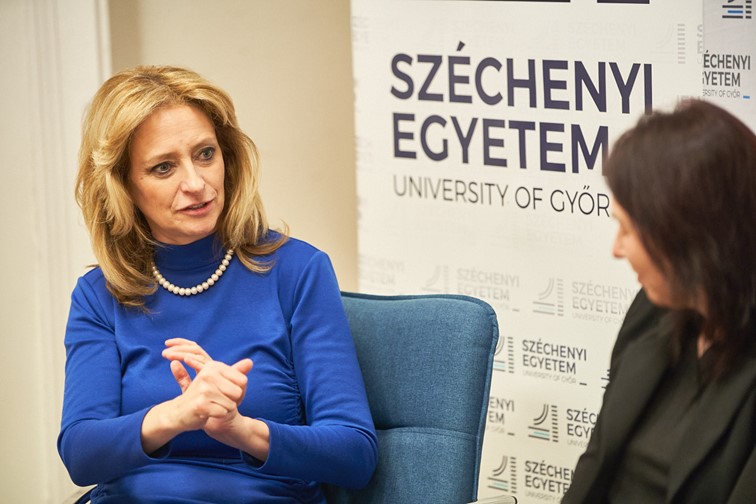 Dr Orsolya Ferencz, Commissioner for Space Research at the Ministry of Foreign Affairs and Trade (on the left)
Dr Orsolya Ferencz, Commissioner for Space Research at the Ministry of Foreign Affairs and Trade (on the left)
Diana Madunic, the Ambassador of Sweden to Hungary, emphasized that her country has been actively striving for decades to establish and maintain gender equality, evident in the fact that 12 out of 25 ministers in their government are women. She mentioned Sweden's high-level family support policy, which includes significant paternity leave to share family responsibilities. The ambassador also spoke about the collective effort needed for peace, especially from those in influential positions serving society. We must also reckon with the fact that we need to combat another global problem: climate change. 'Last month, I met with Katalin Karikó, and I was impressed by her focus, talent, and resilience in the face of challenges. I am happy to represent my country in Hungary, a nation that has contributed numerous Nobel laureates to the world,' she noted.
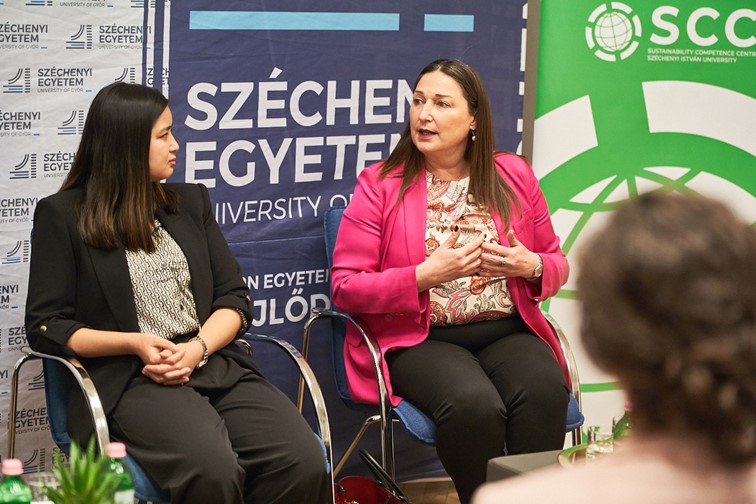 Diana Madunic, Ambassador of Sweden to Hungary (on the right)
Diana Madunic, Ambassador of Sweden to Hungary (on the right)
Dr Katalin Balázsi, President of the Women in Science Association, explained that she is the only female leader among the management of the 21 laboratories at the HUN-REN Energy Science Research Centre. However, she places special importance on channeling women into research work. Over the past few years, she has successfully increased the proportion of female researchers in her team from 10% to 40%. According to her, it is a significant help for women with small children if the employer provides the opportunity for remote work. 'Research is a true passion. Achieving results takes years, and perseverance and motivation are essential for this,' she emphasized.
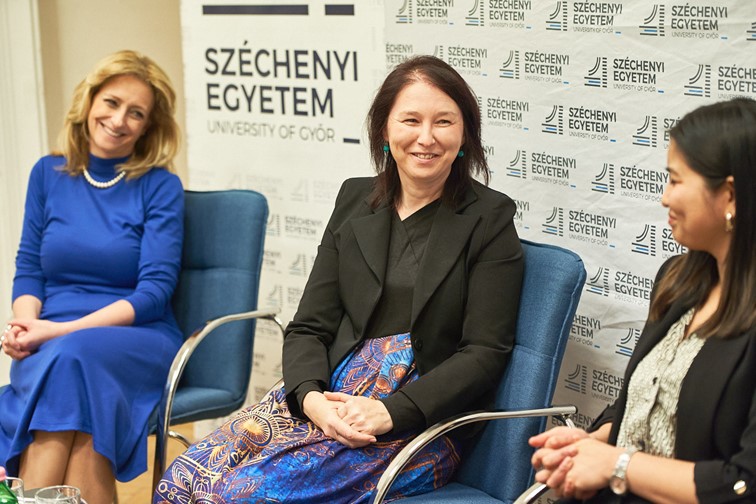 Dr. Katalin Balázsi, President of the Women in Science Association (in the middle)
Dr. Katalin Balázsi, President of the Women in Science Association (in the middle)
Dr Lamnganbi Mutum, an Indian agronomist, who recently obtained her PhD from Széchenyi István University, shared that she faces a crossroads in deciding whether to start her career in research or in the industry. 'Women need the right security to take on challenges and risk for the perspectives of research and scientific life.' Additionally, she emphasized that through her fieldwork in crop science research, she observed the indispensable role of women in the lives of individual agricultural communities as women provide essential perseverance, faith in their work, and outstanding resilience in the production process. 'It is evident to all of us that food security is a cornerstone of global peace, so it is particularly important to consider the strategies we employ,' she highlighted.
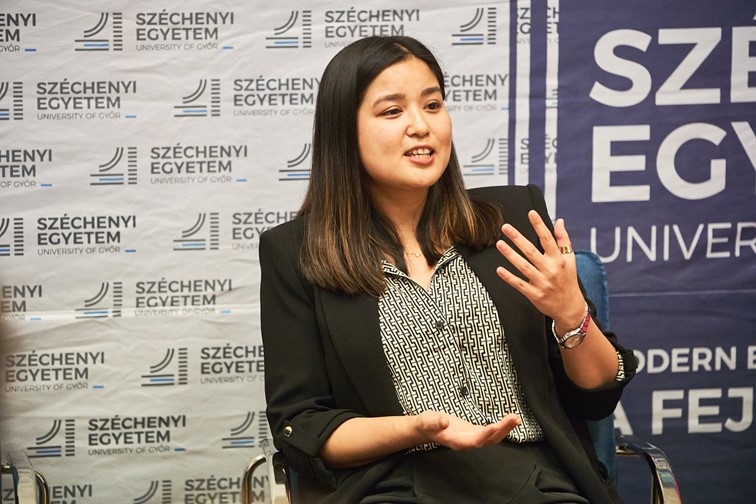 Dr Lamnganbi Mutum, agronomist and alumna of Széchenyi István University
Dr Lamnganbi Mutum, agronomist and alumna of Széchenyi István University








